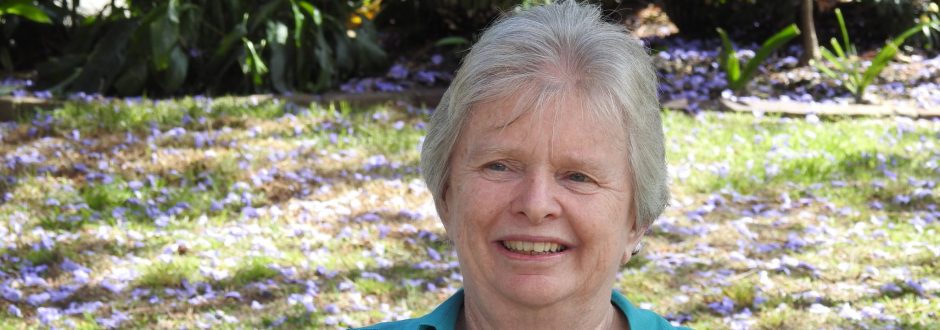It’s good to pause, reflect and celebrate the wisdom and experience older people bring to family, community, Church and society, writes Good Samaritan Sister Clare Condon.
BY Clare Condon SGS
A demographic revolution is underway throughout the world. Today worldwide, there are around 600 million persons aged 60 years and over. This number will double by 2025. (United Nations)
On October 1, the United Nations encourages us to celebrate International Day of Older Persons. It is interesting to note that an older person, according to the United Nations, is someone aged 60 years or over. I am surprised that the starting age is 60. In the Western world, where now people are living longer and healthier lives, 60 seems a little premature. However, whatever age we consider to be ‘older’, it’s good to pause, reflect and celebrate the wisdom and experience older people bring to family, community, Church and society.
Last week, I received a letter from a sister – a member of the Sisters of the Good Samaritan – in her mid to late 80s. Her letter was not a quick text message or email. It was a handwritten, thoughtful and personal letter. In it she reflected on her life’s journey and her growth as a person. She expressed deep gratitude for living a long life, for having the time and the opportunity for her inner life to grow strong and to come close to God in a way she could never have imagined as a younger person. She declared that every day is now a bonus to appreciate and to enjoy.
The Sisters of the Good Samaritan, like many other religious orders, has an average age which fits the older person category. Our average is 74 years of age. Yet, as I experience life with these women I see a group of energetic, enthusiastic and engaging women. They live active lives in their local communities and seem unafraid of change. Some sisters live at the heart of remote and rural communities; some offer retreats and workshops in Benedictine spirituality; others offer support and wise counsel to those in need; others visit the sick in their homes and in hospitals; while others are still pushing the boundaries in advocacy for social and ecological justice. There are some in their 70s and 80s who are even learning how to communicate and network on iPads!
As I reflect on the active and wonderful work of these older women, it occurs to me that ageing is a time for integration; of bringing together a lived experience with all its highs and lows. It is a time to live with an inner peace, a quiet satisfaction and an appreciation for a life well lived. Yet, it needs to be acknowledged that some of these older women experience physical frailty and emotional loneliness as peers and family members die, or vulnerability as mental capacity is not as sharp as it used to be.
As Christians, we claim to believe in the sacredness of every human life and, therefore, to respect the innate value of each individual. As we age, we become more aware that each person’s value lies in who that person is rather than what they do. This journey of ageing is often the passage from doing to being. It is a profound spiritual journey of finding God at the heart of one’s life. I believe that in the letter I received from my sister, she conveyed that she has found the treasure of life; she has found the God within.
St Benedict, in his sixth century Rule, has sound advice and wisdom to offer us about the equanimity that can comes with ageing. He writes: “Let the wise old [woman] be placed at the door of the monastery, one who knows how to take and give an answer and whose mature age does not permit [her] to stray about” (RB 66:1).
Here, I think Benedict is speaking about presence and being – a welcoming, calm presence that has the character of an ‘at-homeness’ with oneself, with others and with God. It is a presence that comes from a life lived well, where one now has time to be with God. Here there is no anxiety, no rushing around, only a welcoming face and heart.
To age gracefully, I believe, needs preparation and that preparation is how I live now. Do I live joyfully rather than with bitterness and anger? Do I have a generous spirit rather that a resistant attitude? Am I free enough to let go rather than to possessively grasp? Do I foster a patient heart ready to wait peacefully in God’s time?
The United Nations proposes values of independence, participation, care, self-fulfilment and dignity for older persons. I see these values in my older sisters. May we all celebrate this richness on October 1.
